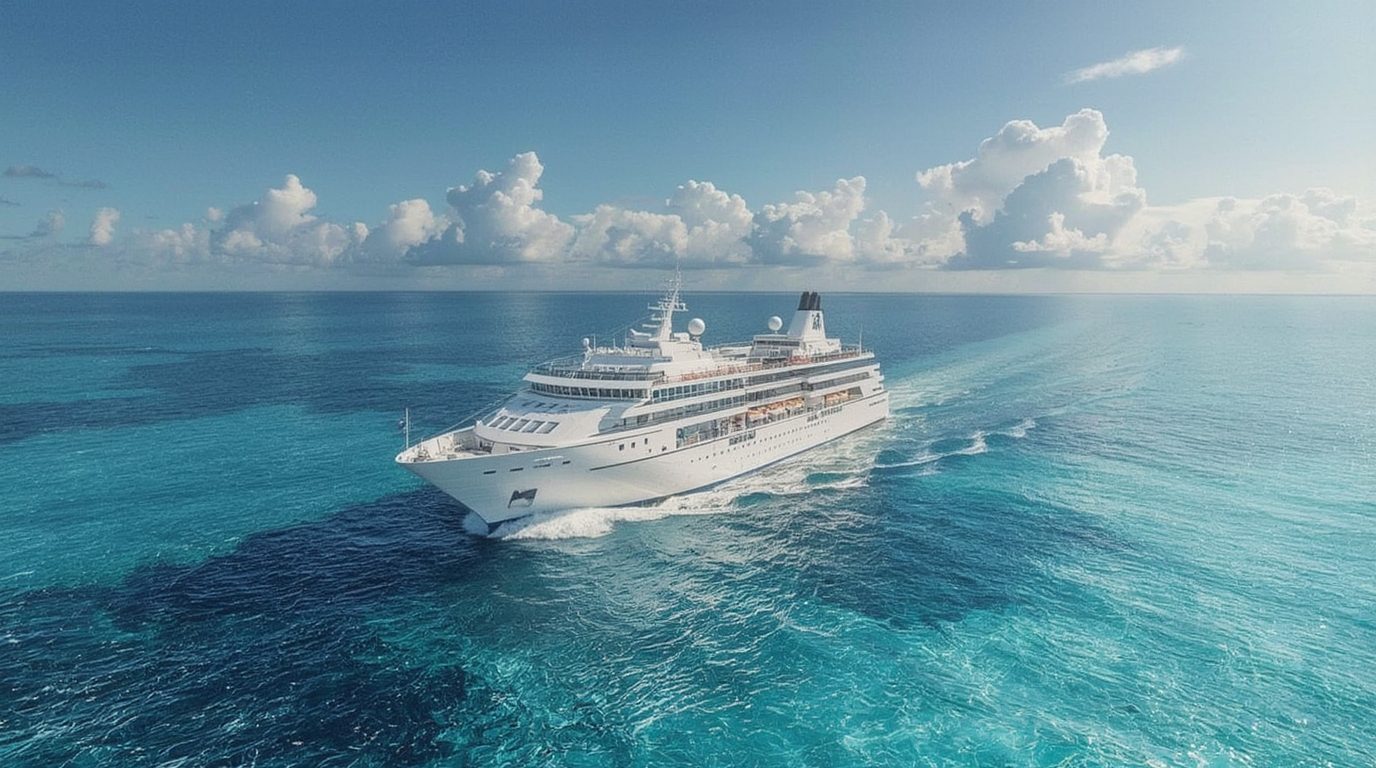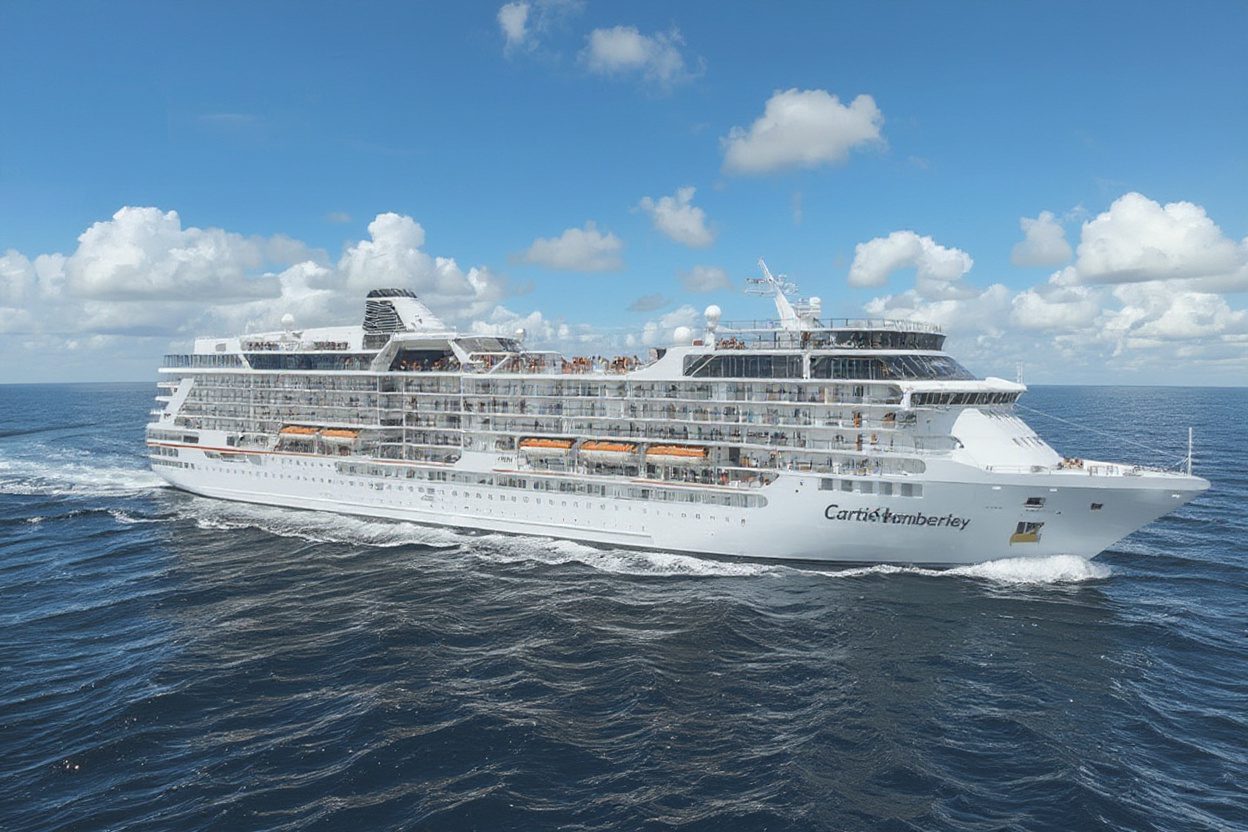The Hidden Privacy Risks of Cruise Ship Travel
Cruise vacations used to feel like a break from the world, but today they dock right in the middle of the digital realm. From facial scans at the gangway to onboard apps that run everything, vacationers are leaving much larger data trails than they notice. Amicus International Consulting has just released new advice to help vacationers enjoy the open water while keeping the Turks and Caicos off the global databases, the retail chips, and the endless surveillance clouds. Neon Report
A Digital Transformation on Deck
Once, setting sail meant paper tickets, hand-scribbled passenger lists, and a brass key for your cabin. Now, the entire journey has a digital thread. Guests book their trips online, pass electronic border checks, and step onboard with a quick smile or a fingertip. After the ship is on open water, bright wristbands and slick apps run everything from supper reservations to snorkel tours.
These smart improvements take friction out of travel, but they also stack up digital dust. Amicus says today’s cruise lines collect everything from passport scans and vaccination certificates to patterns in your gift-shop spending. This data can stick around for years and is usually open to customs officials, class-action lawyers, and data-scraping vendors.
Key Privacy Risks on Cruises
Cruises are different from quick flights. They take longer, visit many international ports, and work closely with border agencies. Because of this, there are several privacy risks:
- Passenger Lists: Cruise lines by law must give port authorities a list with names, passport numbers, and cabin numbers.
- Biometric Boarding: Facial scans and fingerprint checks get you on board faster, but the data goes into permanent government databases.
- Purchase Histories: Anything you buy on the cruise—drinks, spa treatments, internet—shows up in a record tied to your cabin number or app.
- Excursion Itineraries: When you book a shore trip, the records show exactly who you are, where you went, and when.
- Communications Metadata: When your phone connects to Wi-Fi or makes a call on board, the record carries your name and downloaded data.
These data points don’t just vanish when you get home. There are already cases where cruise records ended up in court or in immigration files, proving the holiday data has ripple effects you might not see at the buffet.
Biometric Boarding: Efficiency at a Cost
Biometric checks are popping up at more ports. In the U.S., Customs and Border Protection is rolling out facial recognition at big cruise terminals. Meanwhile, Europe is getting ready for the Schengen Entry/Exit System, which will scan non-EU travelers’ faces or fingerprints when they enter and leave the zone.
Amicus argues these systems make boarding safer, but they also stockpile data that you can’t easily erase. If you care about privacy, the firm recommends you choose ports with optional or less-intrusive biometric checks—sometimes, the extra minute at the desk is worth the peace of mind.
How to Cruise Without Losing Your Privacy
Amicus International Consulting has a few handy tactics to help you keep your information close while still enjoying every port:
- Use Prepaid Travel Cards: Load a card just for vacation expenses so your regular bank account stays off the ship’s radar.
- Book Under Corporate Accounts: Traveling for work? Use the company’s travel account. It keeps your name out of promotional lists.
- Choose Independent Excursions: Book your island zip-lining or city tour with a local guide, not the ship’s app. Your travel history stays with you.
- Limit App Usage: Carry the paper ticket the cruise line sent. It gets you on and off the ship without extra app sign-ins and permissions.
- Select Neutral Embarkation Ports: Beginning your cruise in, say, Jamaica, instead of Miami keeps your home address buried. Less direct linking means more privacy.
- Know the Jurisdictions: Some countries share your shipboard data with more agencies. Use a smart route to sidestep the busy-link countries when planning.
Why This Matters
Once you swipe onto the ship, the data starts flowing. Cruise companies often sell or share so-called “anonymized” records with marketers, while customs uses travel data for tax checks and immigration records. If you cruise often, those records add up and may lead to tax hitches, insurance questions, or surprise residency audits long after the tan has faded.
Amicus stressed that you must still fill out manifests and immigration cards. Those are the law. But you don’t have to hand out extra information just because it’s being asked for.
A Balanced Future for Cruise Travelers
While cruise lines roll out biometric scanners, AI-based guest analytics, and all-digital payment systems, doubts about privacy will keep rising. For us, the key is finding the sweet spot between hassle-free fun and personal privacy. With a little foresight, we can soak in the perks of a seamless cruise and still keep our sensitive data on lockdown.
“Modern voyages no longer float free of the digital grid,” says Amicus. “They anchor in the same monitoring web we bump into at airports, hotels, and ride-share pickups. Savvy travelers can savor the journey—without dragging an oversized digital shadow along.”


